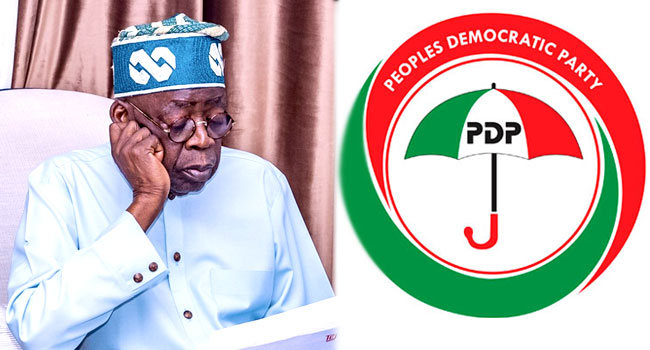NNPCL Didn’t Remit N500bn Revenue In 2024~ W’Bank
The World Bank has disclosed that the Nigerian National Petroleum Company Limited (NNPCL) has been remitting only 50% of the revenue gains from the removal of the Premium Motor Spirit (PMS) subsidy to the Federation Account.
This revelation is part of the latest Nigeria Development Update by the World Bank, which raises concerns about fiscal transparency and revenue management following the deregulation of the downstream petroleum sector.
According to the report, titled "Building Momentum for Inclusive Growth," NNPCL generated N1.1 trillion in 2024 from crude sales and other income but remitted just N600 billion, leaving a shortfall of N500 billion.
The report states that the remaining funds were used by the national oil company to settle outstanding debt obligations.
In 2023, President Bola Tinubu received praise from international financial institutions after announcing the removal of the long-standing petrol subsidy—an action that tripled fuel prices overnight but was expected to save the government billions annually. The move, a key part of his broader economic reform agenda, aimed to redirect funds toward critical infrastructure and social programs. However, public backlash over soaring living costs delayed full deregulation, which only took effect in October 2024 following the launch of the Dangote refinery.
Despite the subsidy’s removal, the World Bank noted that NNPCL delayed transferring the resulting revenue windfall, only beginning remittances to the Federation Account in January 2025—three months later. Since then, it has reportedly been remitting just half of the proceeds, using the rest to offset legacy debts.
The report also projects that, assuming full remittance of the subsidy savings, 70% of the Federal Government’s 2025 revenue would come from oil sources, with the remaining 30% from non-oil sectors.
“The fiscal outlook remains cautiously optimistic but hinges on the necessary consolidation of recent advances. First, it is essential to ensure that the full revenue gains from the removal of the PMS subsidy—estimated at 2.6 per cent of GDP in 2024—are transferred to the Federation.
“Despite the subsidy being fully removed in October 2024, NNPCL started transferring the revenue gains to the Federation only in January 2025. Since then, it has been remitting only 50 per cent of these gains, using the rest to offset past arrears,” the World Bank stated.
A further breakdown showed that NNPCL was the only laggard, remitting just N0.6tn to FAAC in 2024, down from N1.1tn in 2023.
The World Bank attributed this drop to the implicit subsidy regime that persisted until the third quarter of 2024.
It explained, “Gross FAAC revenues surged in 2024, but a large share was deducted and remitted back as revenues to states and local governments.
“Gross revenues collected by Nigeria’s main revenue agencies surged in 2024, despite minimal remittances from NNPCL. FAAC data show that gross revenues collected by the main revenue agencies (FIRS, NCS, NNPCL, and NUPRC) rose significantly from N16.5tn (7 per cent of GDP) in 2023 to N29.5tn (10.6 per cent of GDP) in 2024.
“The largest revenue increases came from FX-denominated sources that benefited from the removal of the FX subsidy, including oil revenues (royalties, taxes, signature bonuses), customs revenues, and the foreign trade-related component of VAT.”
While other FX-denominated revenue sources, such as oil royalties, taxes, and customs duties, recorded significant increases, the report noted that NNPCL remained the major laggard in remitting revenues to the Federation Account Allocation Committee.
“However, NNPCL was the only laggard, remitting just N0.6tn to FAAC in 2024, down from N1.1tn in 2023, largely due to the implicit PMS subsidy, which remained in place until the end of September 2024. Although the subsidy was fully removed on October 1, 2024, NNPCL did not start transferring the resulting revenue gains to the Federation until January 2025. From that point, it began remitting 50 per cent, with the other half being used to settle past arrears.
“As of February 2025, the bank noted that NNPCL’s claimed arrears stood at N7.8tn, while the Federation’s claims totalled N6.1tn, leaving net arrears of N1.7tn still owed to the national oil company.
“In spite of a sharp rise in gross revenues by the country’s main revenue-generating agencies from N16.5tn in 2023 to N29.5tn in 2024, NNPCL’s remittance fell to N600bn in 2024, down from N1.1tn in the previous year.”
5/15/2025, 8:14:25 AM
views 1497
78







